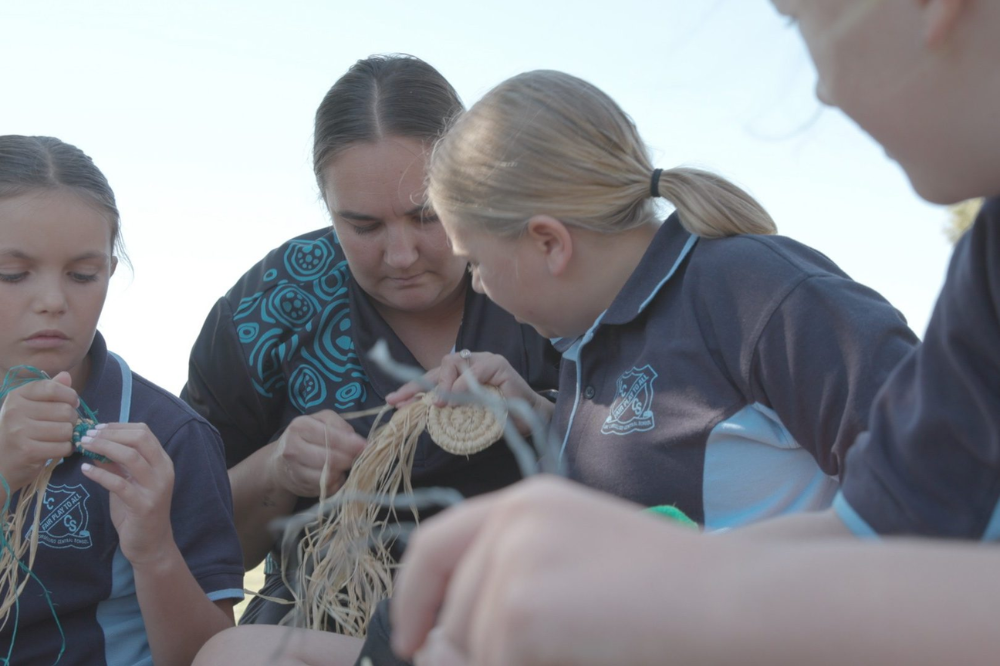
Photo: Courtesy of Culturally Nourishing Schooling project.
A new study by the University of New South Wales (UNSW) proves that there’s power in community immersion that can help educators provide the needs of Aboriginal and Torres Strait Islander students and provide their schooling.
Called the Culturally Nourishing Schooling (CNS) project, it has taken teachers from the four corners of the classroom and sent them to the Country where they can engage, alongside school leaders, with the local Aboriginal Cultural Mentors and community members to know, first-hand, what they need and what they can share in developing and enriching strategies, which help improve Aboriginal student learning.
“This holistic, community-wide approach to education is enabling our CNS schools to boost local connections, build trust between teachers and students, and increase cultural understanding,” said CNS lead investigator, Associate Professor Kevin Lowe, Scientia Indigenous Fellow at the School of Education, UNSW Arts, Design & Architecture.
The project has been running for four years, and teachers have been reporting “increased confidence to engage more fully and authentically with their Indigenous students,” intending to embed Aboriginal perspectives in their teaching and to build relationships with families and community members.
“These changes are transforming students’ learning experiences, with teachers reporting increased class attendance rates, noticeably improved student engagement and eagerness to learn, a renewed sense of cultural pride, and a heightened sense of belonging,” said Lowe.
CNS: Bridging the gap, strengthening the ties
According to the CNS project proponents, learning from the Indigenous along with the other educationally aligned CNS strategies, has encouraged educators to think, act, and relate differently, concerning Aboriginal students and the places and histories they are grounded in.
“Learning from Country is about deepening understanding of Country and the local contexts of each community’s schooling experiences, its histories and lived experiences, important socio-historical events and cultural knowledge,” said Dr. David Coombs, lead author of the recently published paper in the Australian Educational Researcher, which documented the impact of learning from Country on teachers' understandings of place and community. “It creates a sense of belonging and inclusivity and positions Aboriginal people as knowledge holders.”
Earlier, there has been some hesitancy – even avoidance – among teachers to teach Aboriginal content for some reasons, including their lack of knowledge about them. CNS attempted to resolve this by connecting teachers to their local area through Aboriginal relationships to the Country and to local families and communities.
“It's vital to have a strong relationship within your school and your community so that students feel valued,” said Tracey Kingi, a cultural mentor from Tweed River High School. “When we get people coming in from the community, the kids see that and they get a real sense that it's part of their identity.”
A continuous [communal] learning experience
According to the UNSW, the CNS team is working with eight schools in urban, rural, and remote settings across NSW, and every year, a group of teachers participates in professional learning strategies, starting with two-day Learning from Country activities led by local Elders and CNS Cultural Mentors.
This, according to the report, has increased teachers’ understanding of the fundamental importance of Country in learning and teaching and strengthened their connection to the community.


